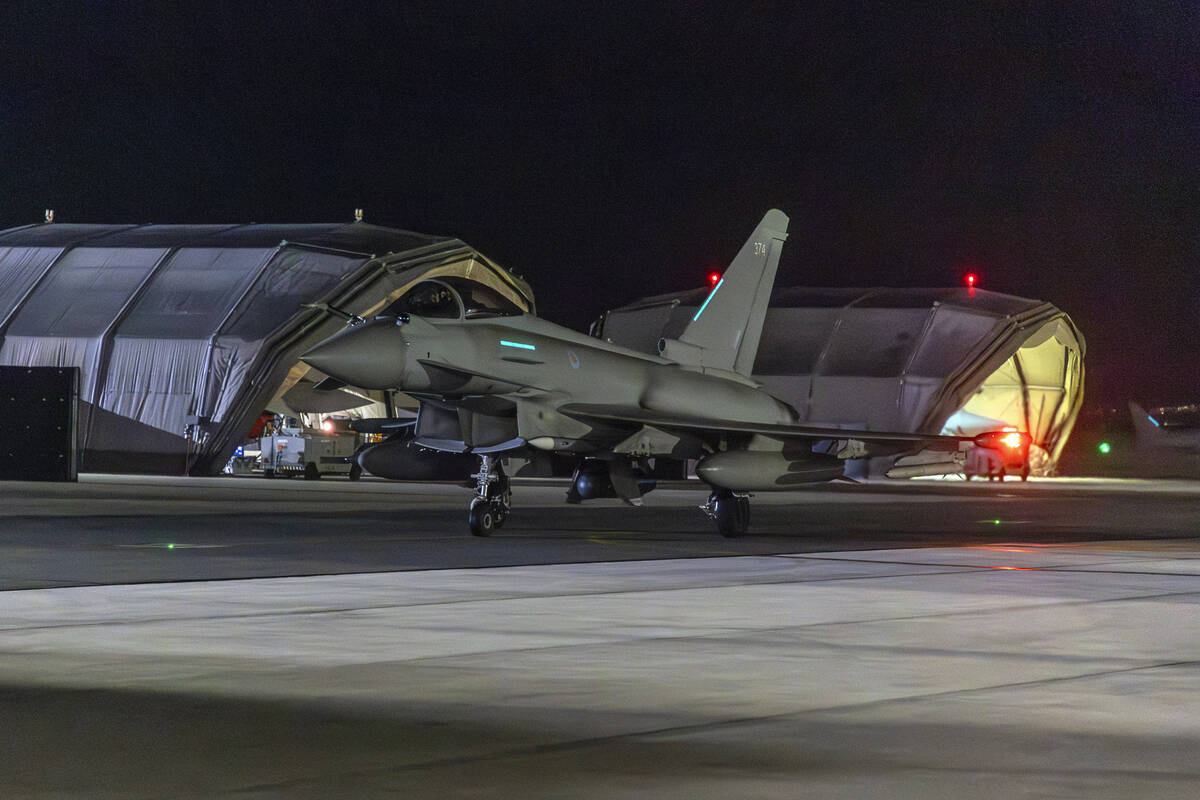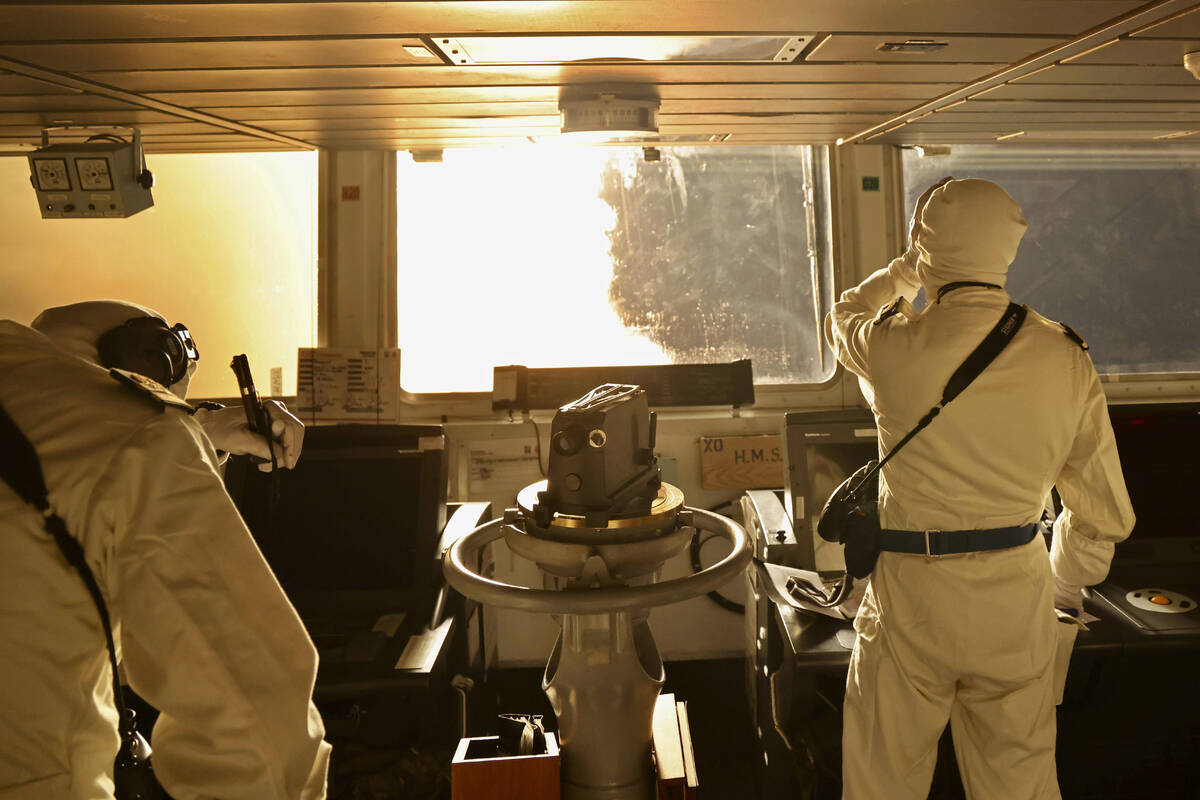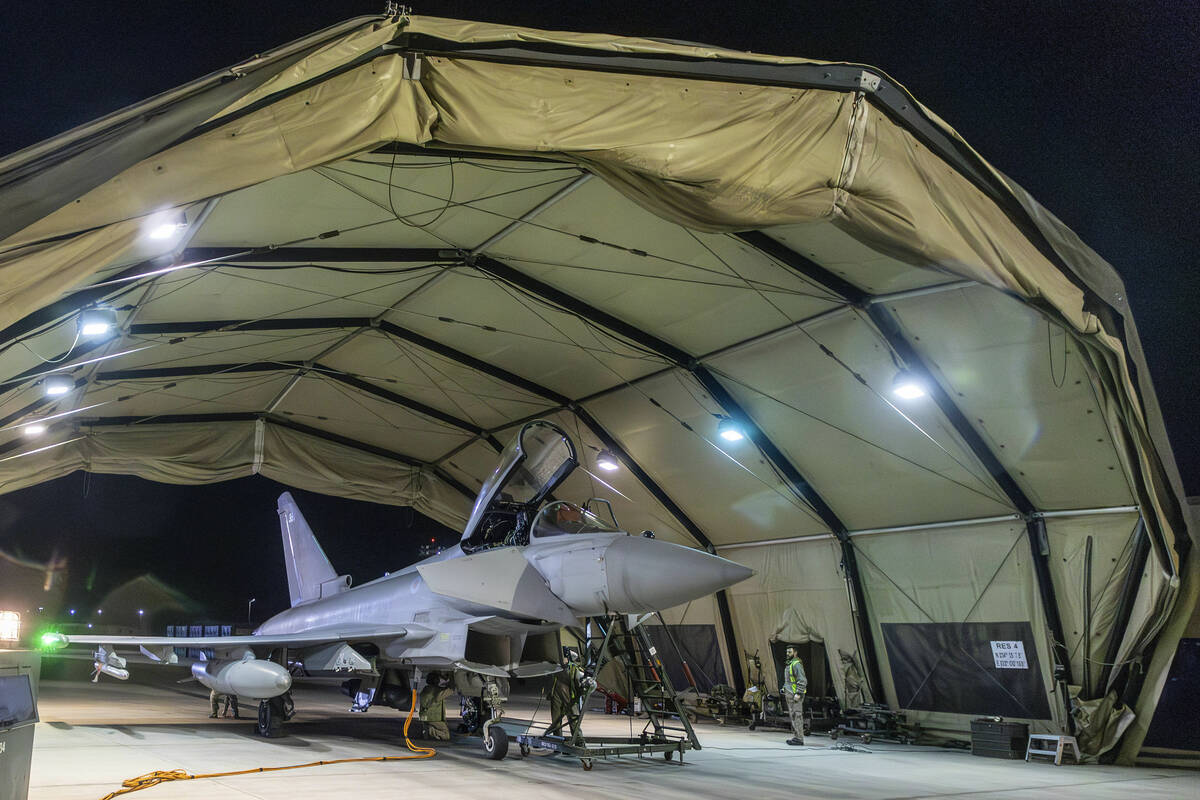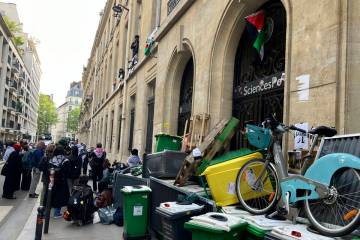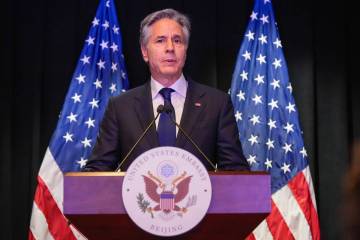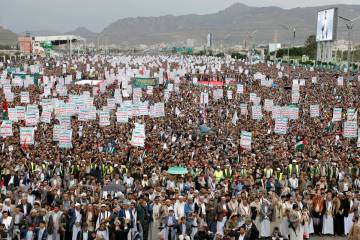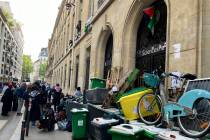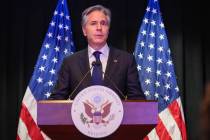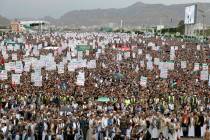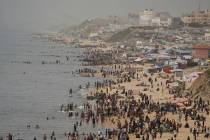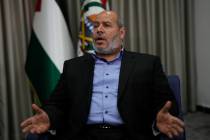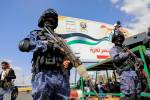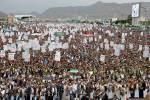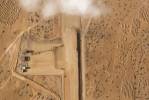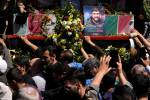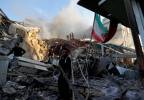US strikes another Houthi-controlled radar site
WASHINGTON — The U.S. military early Saturday struck another Houthi-controlled site in Yemen that it had determined was putting commercial vessels in the Red Sea at risk, two U.S. officials said.
Associated Press journalists in Sanaa, Yemen’s capital, heard one loud explosion.
The first day of strikes Friday hit 28 locations and struck more than 60 targets. However, the U.S. determined the additional location, a radar site, still presented a threat to maritime traffic, one official said.
The officials spoke anonymously to the AP to discuss an operation that hadn’t yet been publicly announced.
President Joe Biden had warned Friday that the Houthis could face further strikes.
The latest strike came after the U.S. Navy on Friday warned American-flagged vessels to steer clear of areas around Yemen in the Red Sea and the Gulf of Aden for the next 72 hours after the U.S. and Britain launched multiple airstrikes targeting Houthi rebels.
The warning came as Yemen’s Houthis vowed fierce retaliation for the U.S.-led strikes, further raising the prospect of a wider conflict in a region already beset by the Israel-Hamas war in Gaza.
U.S. military and White House officials said they expected the Houthis to try to strike back.
The U.S.-led bombardment — launched in response to a recent campaign of drone and missile attacks on commercial ships in the vital Red Sea — killed at least five people and wounded six, the Houthis said.
The U.S. said the strikes, in two waves, took aim at targets in 28 different locations across Houthi-controlled areas of Yemen.
“We will make sure that we respond to the Houthis if they continue this outrageous behavior along with our allies,” Biden told reporters during a stop in Emmaus, Pennsylvania.
Asked if he believes the Houthis are a terrorist group, Biden responded, “I think they are.” The president in a later exchange with reporters during a stop in Allentown, Pennsylvania, said whether the Houthis are redesignated as such was “irrelevant.”
Biden also pushed back against some lawmakers, both Democrats and Republicans, who said he should have sought congressional authorization before carrying out the strikes.
“They’re wrong, and I sent up this morning when the strikes occurred exactly what happened,” Biden said.
Pentagon: Austin ordered strike
The Pentagon said Defense Secretary Lloyd Austin ordered the military action from the hospital where he is recovering from complications following prostate cancer surgery.
The White House said in November that it was considering redesignating the Houthis as a terrorist organization after they began targeting civilian vessels. The administration formally delisted the Houthis as a “foreign terrorist organization” and “specially designated global terrorists” in 2021, undoing a move by President Donald Trump
Lt. Gen. Douglas Sims, director of the Joint Staff, said that the new U.S. strikes were largely in low-populated areas, and the number of those killed would not be high. He said the strikes hit weapons, radar and targeting sites, including in remote mountain areas.
As the bombing lit the predawn sky over multiple sites held by the Iranian-backed rebels, it forced the world to again focus on Yemen’s yearslong war, which began when the Houthis seized the country’s capital.
Since November, the rebels have repeatedly targeted ships in the Red Sea, saying they were avenging Israel’s offensive in Gaza against Hamas terrorists. But they have frequently targeted vessels with tenuous or no clear links to Israel, imperiling shipping in a key route for global trade and energy shipments.
The Houthis’ military spokesman, Brig. Gen. Yahya Saree, said in a recorded address that the U.S. strikes would “not go unanswered or unpunished.”
Concerns about escalating tensions
Rep. Elissa Slotkin, a Michigan Democrat and former U.S. intelligence official, welcomed the U.S. strikes but expressed concern Iran was aiming to draw the U.S. deeper into conflict.
Iran has long vowed to destroy U.S. ally Israel.
“We should be worried about regional escalation,” Slotkin wrote on X. “Iran uses groups like the Houthis to fight their battles, maintain plausible deniability and prevent a direct conflict with the U.S. or others. … It needs to stop, and my hope is they’ve gotten the message.”
Biden told reporters that Iran has received a clear message. “I already delivered the message to Iran. They know not to do anything,” he said.
Though the Biden administration and its allies have tried to calm tensions in the Middle East for weeks and prevent any wider conflict, the strikes threatened to ignite one.
Saudi Arabia — which supports the government-in-exile that the Houthis are fighting — quickly sought to distance itself from the attacks as it seeks to maintain a delicate détente with Iran and a cease-fire it has in Yemen.
The Saudi-led, U.S.-backed war in Yemen has killed more than 150,000 people, including fighters and civilians, and created one of the world’s worst humanitarian disasters, killing tens of thousands more.
It remained unclear how extensive the damage was from Friday’s strikes, though the Houthis said at least five sites, including airfields, had been attacked. The White House said the U.S. military was still assessing the extent the terrorists’ capabilities might have been degraded.
U.S. Air Forces Central Command said the strikes focused on the Houthi’s command and control nodes, munition depots, launching systems, production facilities and air defense radar systems.
The strikes involved more than 150 precision-guided munitions including air-launched missiles by F/A-18 Super Hornets based on the USS Dwight D. Eisenhower, and Tomahawk missiles from the Navy destroyers USS Gravely and USS Mason, the Navy cruiser USS Philippine Sea, and a U.S. submarine.
The United Kingdom said strikes hit a site in Bani allegedly used by the Houthis to launch drones and an airfield in Abbs used to launch cruise missiles and drones.
Meanwhile, the U.S. Treasury Department on Friday announced it imposed sanctions on two firms in Hong Kong and the United Arab Emirates for allegedly shipping Iranian commodities on behalf of Iran-based Houthi financial facilitator Sa’id al-Jamal. Four vessels owned by the firms were also identified as blocked property.
Iran releases tanker footage
In a separate development, Iran released footage of its seizure of an oil tanker in the Gulf of Oman that once had been at the center of a dispute between Tehran and Washington.
In the footage, a helicopter hovers over the deck of the St. Nikolas. Iran’s navy seized the vessel Thursday. The vessel had been known earlier as the Suez Rajan. The U.S. seized 1 million barrels of sanctioned Iranian oil off the vessel last year.
In Yemen, Hussein al-Ezzi, a Houthi official in their Foreign Ministry, said that “America and Britain will undoubtedly have to prepare to pay a heavy price and bear all the dire consequences of this blatant aggression.”
The Red Sea route is a crucial waterway, and attacks there have caused severe disruptions to global trade. Benchmark Brent crude oil traded up some 4 percent Friday at over $80 a barrel. Tesla, meanwhile, said it would temporarily halt most production at its German factory because of attacks in the Red Sea.
In Saada, the Houthis’ stronghold in northwest Yemen, hundreds gathered for a rally Friday, denouncing the U.S. and Israel. Another drew thousands in Sanaa, the capital.
Houthis now control territory that is home to some two-thirds of Yemen’s population of 34 million. War and misgovernment have made Yemen one of the poorest countries in the Arab world, and the World Food Program considers the vast majority of Yemen’s people as food-insecure.
Yemen has been targeted by U.S. military action over the last four American presidencies. A campaign of drone strikes began under President George W. Bush to target the local affiliate of al-Qaida, attacks that have continued under the Biden administration. Meanwhile, the U.S. has launched raids and other military operations amid the ongoing war in Yemen.
That war began when the Houthis swept into Sanaa in 2014. A Saudi-led coalition including the United Arab Emirates launched a war to back Yemen’s exiled government in 2015, quickly morphing the conflict into a regional confrontation as Iran backed the Houthis with weapons and other support.
The conflict, however, has slowed as the Houthis maintain their grip on the territory they hold. In March, Saudi Arabia reached a Chinese-mediated deal to restart relations with Iran in hopes of ultimately withdrawing from the war.
Iran condemned Friday’s attack in a statement from Foreign Ministry spokesperson Nasser Kanaani.
“Arbitrary attacks will have no result other than fueling insecurity and instability in the region,” he said.
In Beijing, Chinese Foreign Ministry spokeswoman Mao Ning called on nations not to escalate tensions in the Red Sea. And Russia on Friday condemned the strikes as “illegitimate from the point of view of international law.”
———
AP writer Aamer Madhani reported from Washington. AP writers Bassem Mroue in Beirut, Jill Lawless in London, Nasser Karimi in Tehran; Lolita C. Baldor, Tara Copp, Fatima Hussein, Ellen Knickmeyer and Chris Megerian in Washington, and Seung Min Kim in Emmaus, Pennsylvania, contributed to this report.



